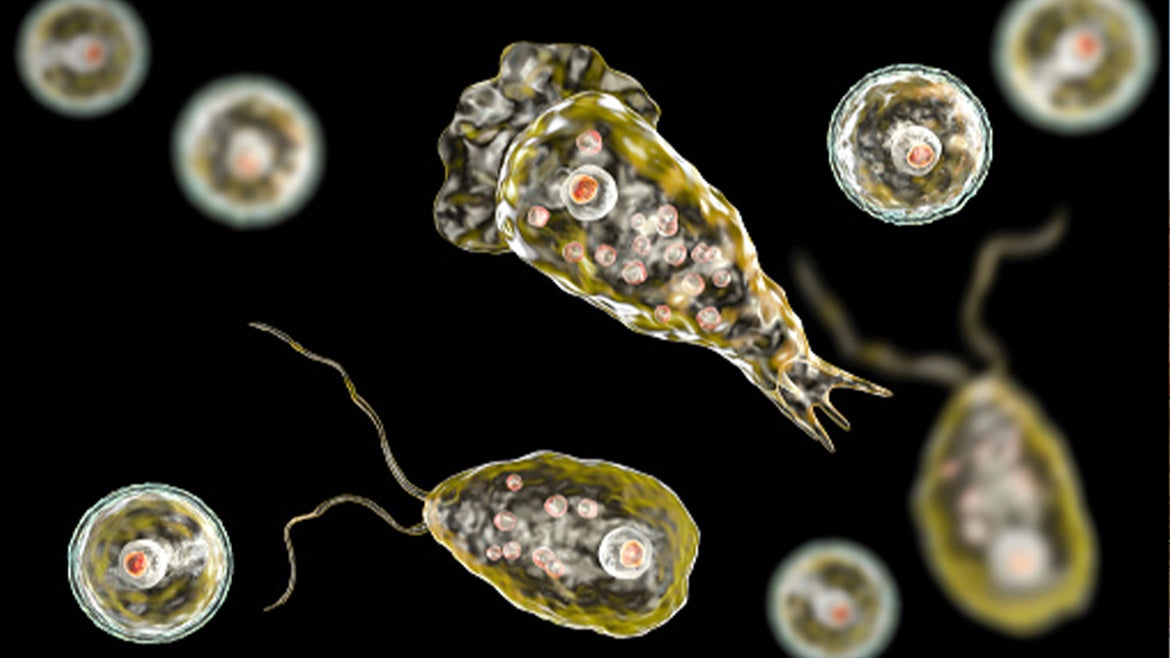A week after swimming in Lake Mead, a young boy developed symptoms of the rare and often fatal Naegleria fowleri and died.
A Nevada boy has died from a rare and often lethal brain infection that he may have contracted while swimming in a lake, according to health officials.
The boy, whose identity has not been released, visited the eastern part of Lake Mead at the beginning of October, according to the Southern Nevada Health District.
The boy began to develop symptoms of an uncommon illness that is caused by Naegleria fowleri — an organism commonly known as a "brain-eating" amoeba because it attacks and destroys brain tissue, according to the CDC.
The Southern Nevada Health District said Wednesday that exposure to Naegleria fowleri causes a disease called primary amebic meningoencephalitis — a meningitis-like infection that targets the brain and is usually fatal.
The infection also often occurs in boys younger than 14 for reasons not yet known, according to the CDC.
According to the CDC, symptoms of the disease include headache, fever, nausea and vomiting, later increasing to a stiff neck, seizures, hallucinations, and coma.
Typically the symptoms begin about five days after exposure to the organism, but can remain dormant for as long as 12 days in some cases, according to the CDC.
Per the agency, the disease usually progresses quickly and causes death within five days. The boy’s symptoms began about a week after visiting Lake Mead, and following an investigation conducted by the health district and the U.S. Centers for Disease Control and Prevention, Naegleria fowleri was confirmed as the boy's cause of death, according to the officials.
According to the National Park Service, the amoeba occurs naturally in freshwater — especially in warm bodies with low elevation — and has been found before in Lake Mead.
"My condolences go out to the family of this young man," said Dr. Fermin Leguen, the district health officer for Southern Nevada, in a statement. "While I want to reassure the public that this type of infection is an extremely rare occurrence, I know this brings no comfort to his family and friends at this time."
The CDC recorded 154 confirmed cases of infection by Naegleria fowleri in the U.S. between 1962 and 2021, and at least 31 of them were recorded over the last 10 years, with nearly all of those cases being fatal.
While this boy's death is the first in the state, it comes after at least two other cases of the infection reported in 2022, including one person hospitalized after swimming in a lake in Iowa, and a child who died after swimming in a Nebraska river.
“The National Park Service, working with the NPS Office of Public Health, has made the decision to continue to allow recreational swimming at Lake Mead National Recreation Area as the organism exists naturally and commonly in the environment but disease is extremely rare,” Dr. Maria Said, U.S Public Health Service Officer, said to National Parks Traveler.
“However, recreational water users should always assume there is a risk anytime they enter warm fresh water,” Said said.
To lower the risk of exposure, the CDC recommends that people:
- Avoid jumping or diving into bodies of warm, fresh water.
- Hold their noses shut, use nose clips, or keep their heads above water while swimming in those areas.
- Avoid submerging their heads in hot springs and other bodies of water that are untreated.
- Refrain from digging up sediment in freshwater that is shallow and warm.






